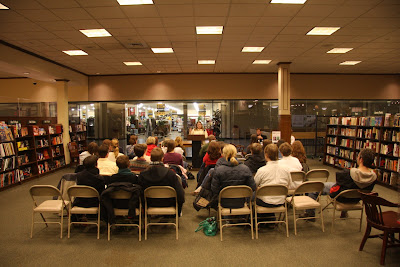This image is gorgeous, I think. What a beautiful portrait and the colors, so rich, the backdrop so important to what I've learned was key in Bill Holm's work, that sense of place and culture.
I picked up his book Playing the Black Piano on a trip to the Minnesota Center for the Book Arts, curious of what else Eireann's publisher has put out.
There are many tributes up on the internet:
- Star Tribune
Holm wrote his drafts in longhand on yellow note pads, and because Buchwald could not decipher his handwriting, he hired a typist to transcribe them. "I would give him written comments, and he would give his rebuttal. He was never tactful, but that's all right," Buchwald said. "He was forthright. He never turned down a comment or suggestion that he felt might genuinely help the book along."
Holm taught for 27 years at Southwest Minnesota State University at Marshall. "Boxelder Bug Variations" came about because of an assignment he gave his students, who complained that they had nothing to write about, out there on the prairie. "He told them, 'That's ridiculous! You can write about anything!'" Buchwald said. "A boxelder bug was crawling across his desk, and he said, 'You can write about this!' And he gave them that assignment. And then he gave it to himself."
- Marshall Independent
While Holm wrote his works, it was often Sandy Mosch, a long-time SMSU administrative assistant in the English department, who typed them because Holm did not use a computer.
Mosch said she typed Holm's books and poems for many years.
"He wrote them in longhand," she said.
- MPRHolm was an occasional guest on A Prairie Home Companion radio show on American Public Media. The program's host, Garrison Keillor, called Holm a great man.
"And unlike most great men, he really looked like one. 6 foot 8 inches, big frame, and a big white beard and a shock of white hair, a booming voice, so he loomed over you like a prophet and a preacher, which is what he was," said Keillor.
"I wish I'd been there to catch him as he fell," Keillor continued. "I hope his Icelandic ancestors are waiting to welcome him to their rocky corner of heaven. I hope his piano goes to someone who will love it as much as he did. I hope that people all across Minnesota will pick up one of his books and see what the man had to say."
- GuernicaAnd:






























































